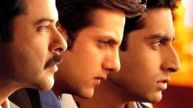As Bajrangi Bhaijaan completes a decade since its release, director Kabir Khan reflects on what made the film a timeless classic. From Salman Khan’s heartfelt performance to Harshali Malhotra’s unforgettable charm, the filmmaker opens up about the journey, the film’s enduring popularity, and what it took to bring this emotional story to life.
Kabir, ten years of your most beloved film?
It’s been ten years since the release of Bajrangi Bhaijaan and yes, the love still keeps pouring in. I’ve often been asked what I think is the reason of its immense popularity and I think there’s so many reasons. I think in a film, ultimately everything comes together to make it a great film and in this case, you know, of course, it’s the popularity of the characters.
How much do you think Salman Khan contributed to the film’s success?
Oh tremendously! Every character became iconic, you know, Salman’s character as Bajrangi Pawan, then there’s of course Munni, then there’s, you know, Kareena’s character, Nawazuddin’s character, Chand Nawab. They all come together in a very entertaining package .
How do you explain the film’s popularity?
The film ultimately speaks about love which I think really resonated with people and even now, even after ten years, people are messaging me almost every week about, just caught it on television again or on the OTT platforms and they cried and they laughed. So I think it’s just the fact that it’s a big entertainer with a big heart.
Was it difficult directing Harshali who sort of played the female lead?
It’s never easy directing children and it wasn’t easy directing Harshali but at the same time, it was also very, very enjoyable because at the end of the day, children are what really test you as a director. You can’t expect them to come like prepared with their craft or, you know, any sort of logic. You have to make them on a day-to-day basis, you know, act in a certain way which is appropriate for the scene. So there’s a lot of homework, there’s a lot of workshopping that goes behind it. There’s a lot of, you know, spending time with them to make them comfortable with you that goes behind getting them to act naturally on screen and Harshali was somebody who really, even at that young age, had a burning desire to, you know, perform, be in the film.
How did you find her?
She was found from amongst two thousand auditions that Mukesh Chhabra had conducted and then she was brought to this workshop where ten girls had been brought together and we workshopped them for a couple of weeks and in that workshop, it was very clear that, you know, Harshali is not only the fact that she had that million-dollar smile but also the fact that she really had the stamina and the rigor to go through it.
If you had a chance to make Bajrangi Bhaijaan now what would you change?
I think for any director, when you look back at your films, there will always be something or other that you will want to tinker and change and, you know, say, okay, maybe I would not have done it this way and so with Bajrangi also, of course, there are many scenes which I look at and say, oh, maybe I should have shot it differently or maybe we should have edited differently or maybe the music should have come at a different place but these are small details. When it comes to the larger arc of the film and the larger arc of storytelling, I would change nothing. I think the reason why the film is the iconic film that it is today is because everything came together beautifully. So, yeah, I would not really change anything .
How did you get Salman to be so much in character?
A lot of people talk about Bajrangi being Salman’s finest and many a times I am asked about how did I manage to get him to, you know, really play a character without any of the usual mannerisms that Salman usually displays in a lot of his other films but I think a lot of the credit has to go to Salman himself because it’s he who decided to completely immerse himself into the character of Bajrangi and I could see him doing that. We used to have a lot of discussions about the character and the story and, you know, there was never a moment in time when I really had to sort of change what he was doing or tell him, no, this is not going to work, let’s because he just brought it himself to the table and that shows and that’s the reason why his performance is being appreciated so much even after ten years.












